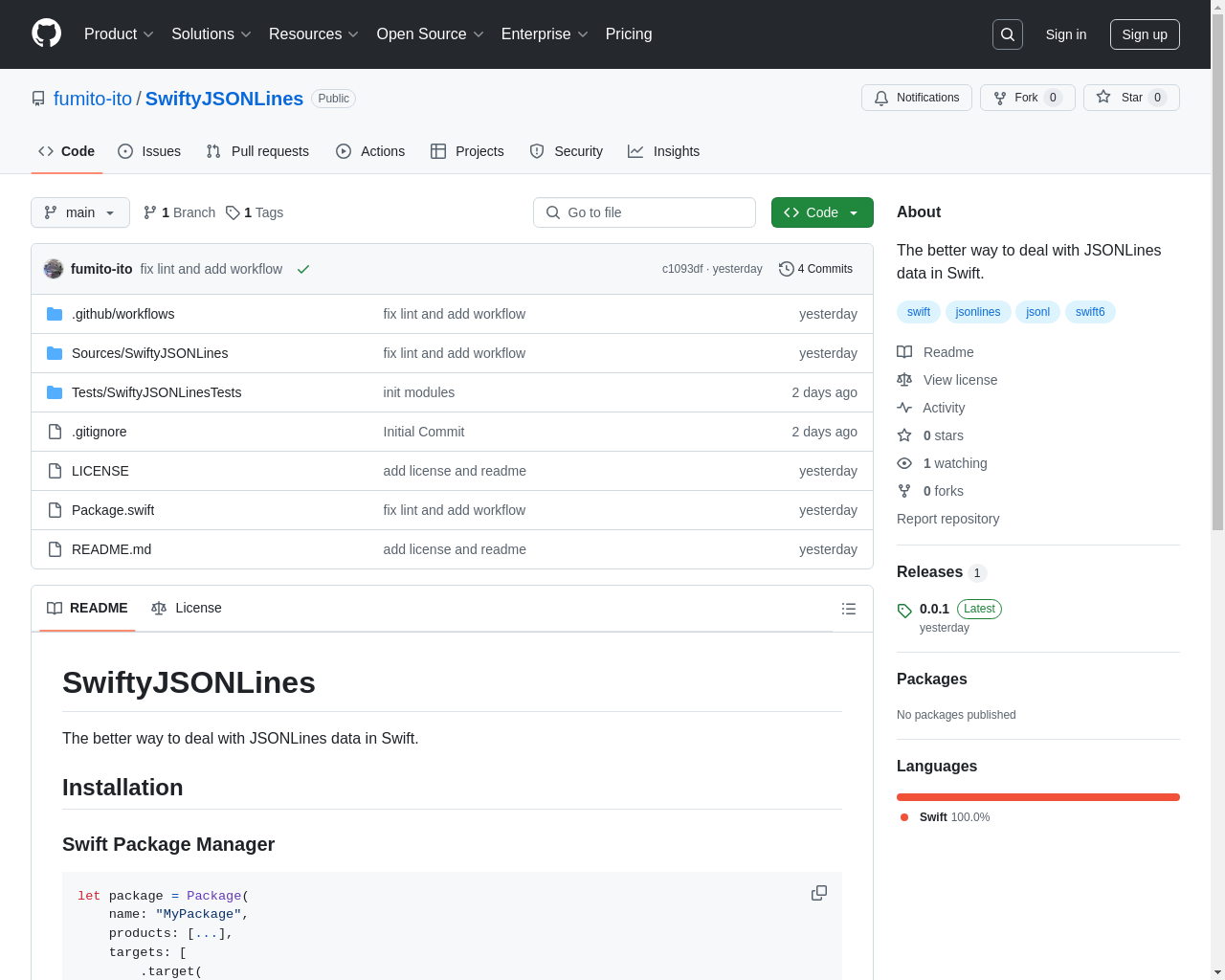

Highlight 1
The library provides a straightforward API that makes it easy for developers to handle JSON Lines data without extensive boilerplate code.
Highlight 2
SwiftyJSONLines supports both file and in-memory data formats, providing flexibility in how data is processed and ingested.
Highlight 3
The library is built with performance in mind, ensuring that it can efficiently handle large datasets typically found in LLM outputs.

Improvement 1
The documentation could be expanded to include more examples and use cases to help new users understand its capabilities better.
Improvement 2
The library could benefit from a comprehensive set of tests and usage examples to ensure reliability and encourage contributions.
Improvement 3
Adding more error handling features or options for custom error messages would enhance its robustness when processing malformed JSON Lines.
Product Functionality
Consider adding file format converters or utilities to facilitate working with other data formats beyond JSONL.
UI & UX
Improve the website UI by making navigation more intuitive and enhancing the visual presentation of code examples and documentation.
SEO or Marketing
Create blog posts or case studies that demonstrate real-world applications and benefits of using SwiftyJSONLines to attract more developers.
MultiLanguage Support
Add language support for non-English-speaking users in the documentation to reach a wider audience of developers globally.
- 1
What is JSON Lines format?
JSON Lines format is a convenient way to store structured data, where each line is a separate JSON object, making it easy to process records one at a time.
- 2
How do I install SwiftyJSONLines?
You can install SwiftyJSONLines via Swift Package Manager by adding it as a dependency in your project.
- 3
Can I use SwiftyJSONLines with Objective-C?
SwiftyJSONLines is designed for Swift. For Objective-C projects, you may need to create a bridging header or look for similar libraries that support Objective-C.
